Related Research Articles
In some countries, security police are those persons employed by or for a governmental agency or corporations with large campuses who provide police and security services to those agencies' properties.
Special police usually describes a police force or unit within a police force whose duties and responsibilities are significantly different from other forces in the same country or from other police in the same force, although there is no consistent international definition. A special constable, in most cases, is not a member of a special police force (SPF); in countries in the Commonwealth of Nations and often elsewhere, a special constable is a voluntary or part-time member of a national or local police force or a person involved in law enforcement who is not a police officer but has some of the powers of a police officer.
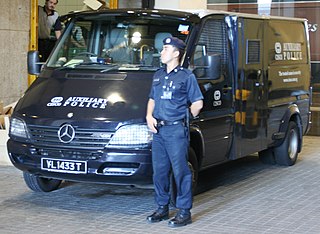
Auxiliary police, also called special police, are usually the part-time reserves of a regular police force. They may be armed or unarmed. They may be unpaid volunteers or paid members of the police service with which they are affiliated. In most jurisdictions, auxiliary police officers are empowered to make arrests for crimes that occur in their presence.
A law enforcement officer (LEO), or peace officer in North American English, is a public-sector employee whose duties primarily involve the enforcement of laws. The phrase can include police officers, municipal law enforcement officers, special police officers, customs officers, state troopers, special agents, secret agents, special investigators, border patrol officers, immigration officers, court officers, probation officers, parole officers, arson investigators, auxiliary officers, game wardens, sheriffs, constables, corrections, marshals, deputies, detention officers, correction officers, and public safety officers. Security guards are civilians and therefore not law enforcement officers, unless they have been granted powers to enforce particular laws, such as those accredited under a community safety accreditation scheme such as a security police officer.

A police academy is a training school for police recruits. It is also known as a law enforcement academy, college, or university. It involves a variety of background checks. These include examinations, physical requirements, medical requirements, legal training, driving skills, equipment training, and firearm training for law enforcement recruits. The academy prepares recruits for the law enforcement agency they will be assigned to upon graduation.

The Alaska State Troopers, officially the Division of Alaska State Troopers (AST), is the state police agency of the U.S. state of Alaska. It is a division of the Alaska Department of Public Safety (DPS). The Alaska State Troopers is a full-service law enforcement agency which handles both traffic and criminal law enforcement. The Alaska State Troopers is also involved in apprehending fugitives as part of the Alaska Fugitive Task Force, an inter-agency collaborative of Alaska police departments that cooperates with police agencies throughout the United States and less commonly with Interpol in apprehending wanted men and women. Unlike many lower-48 states, Alaska troopers are both state troopers and game/wildlife enforcement officers.

The Delaware County Bureau of Park Police & Fire Safety is a county-wide police department, responsible for providing police services & fire safety for all parks, trails, physical property, and government buildings of Delaware County, Pennsylvania. This is the only police department in Delaware County that has county-wide jurisdiction, as every municipality has either its own police department or is patrolled by the Pennsylvania State Police.
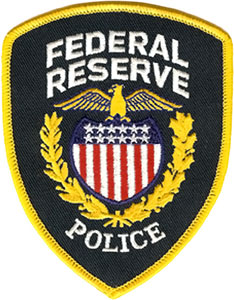
The U.S. Federal Reserve Police is the law enforcement unit of the Federal Reserve System, the central banking system of the United States.
In the U.S. state of Oregon, enforcement of local, state, and federal law on public university property is delegated to a number of security, public safety, and police agencies.
Company police, also called private police, are privately paid law enforcement officers who work for a private company rather than a municipal, county, state, or national agency.
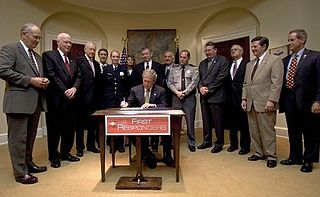
The Law Enforcement Officers Safety Act (LEOSA) is a United States federal law, enacted in 2004, that allows two classes of persons—the "qualified law enforcement officer" and the "qualified retired or separated law enforcement officer"—to carry a concealed firearm in any jurisdiction in the United States, regardless of state or local laws, with certain exceptions.
The Texas Commission on Law Enforcement or TCOLE, serves as the regulatory agency for all peace officers in Texas, which includes sheriffs and their deputies, constables and their deputies, police officers, marshals, troopers, Texas Rangers, enforcement agents of the Alcoholic Beverage Commission, investigators of the Attorney General, and game wardens. County jailers and public security officers are also regulated by TCOLE.
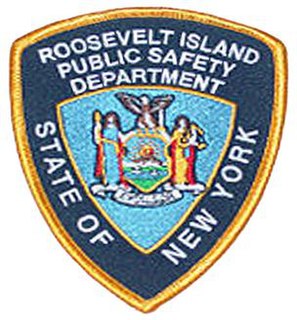
The Roosevelt Island Public Safety Department (RIPSD) in New York City provides safety and security service to residents of Roosevelt Island, and the Manhattan and Roosevelt Islands stations of the Roosevelt Island Tramway, because of the contract that the State of New York made with New York City in 1968 which gave the state a 99-year lease on the land. The department protects the island's property including all facilities by patrolling certain contracted residential buildings 24 hours a day, 7 days a week, but the New York City Police Department is responsible for providing policing service on Roosevelt island. RIPSD officers enforce all laws on the island. The department has approximately 40 public safety officers who patrol the islands less than 1 square mile in area. On September 21, 2009, the department opened its new command center at 550 Main Street which permanently monitors an island-wide camera system and every vehicle that comes onto the island, as well as cameras on the Manhattan side of the tram, along the route and inside the tram cars. Public safety officers also monitor cameras in the Roosevelt Landings housing complex. The department released a recruitment video under the former Chief Guerra.

A security guard is a person employed by a government or private party to protect the employing party's assets from a variety of hazards by enforcing preventative measures. Security guards do this by maintaining a high-visibility presence to deter illegal and inappropriate actions, looking for signs of crime or other hazards, taking action to minimize damage, and reporting any incidents to their clients and emergency services, as appropriate.
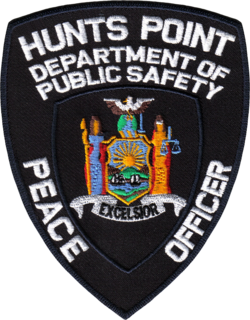
The Hunts Point Department of Public Safety is a private law enforcement agency in the South Bronx in New York City, which is patrolled by the New York City Police Department's 41st Precinct. Hunts Point Public Safety officers' duties are to protect the people and property and enforce all laws at the Hunts Point Market which is less than 1 square mile in size, including all its facilities, storefronts and railways.

The Utah Transit Authority Public Safety Department is the law enforcement arm of the Utah Transit Authority (UTA) transit district. UTA is a public transit district government agency made up of the participating municipalities, counties, and the State of Utah. The UTA Public Safety Department is responsible for law enforcement services, crime investigations, crime prevention, and public safety throughout the light rail, commuter rail and bus transit systems, within the UTA transit district.
The South Carolina Law Enforcement Division (SLED) is a statewide investigative law enforcement agency in South Carolina. SLED provides manpower and technical assistance to other law enforcement agencies and conducts investigations on behalf of the state as directed by the Governor and Attorney General. SLED Headquarters is located in the state capital, Columbia, with offices in the Midlands, Piedmont, Pee Dee, and Low Country regions.
In the United States, there is no consistent use of the office of constable throughout the states; use may vary within a state. A constable may be an official responsible for service of process: such as summonses and subpoenas for people to appear in court in criminal and/or civil matters. They can also be fully empowered law enforcement officers. Constables may have additional specialized duties unique to the office. In some states, a constable may be appointed by the governor or a judge or magistrate of the court which he or she serves; in others the constable is an elected or appointed position at the state or local level of local government. Their jurisdiction can vary from statewide to county/parish and local township boundaries based on the state's laws.
References
- ↑ "SLED.SC.GOV". SLED.SC.GOV. Retrieved 2013-11-01.